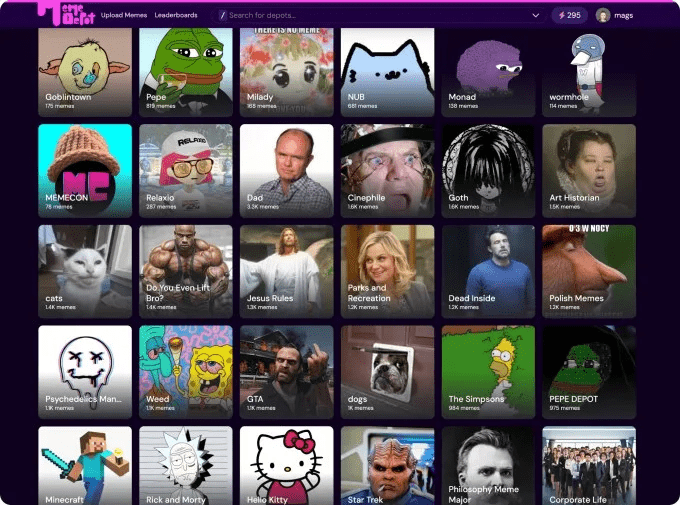Alex Taub, a seasoned entrepreneur with multiple successful ventures, believes the meme industry is ripe for disruption. “I have this big thesis that meme tech is going to be the next big category,” Taub told TechCrunch. “Like, there’s health tech, there’s proptech, there’s adtech, there’s fintech… I think meme tech is about to have a big moment.”
The meme industry has seen little innovation in over a decade. If you want to find the perfect SpongeBob meme, you might Google “Mr. Krabs confused meme.” Memes are integral to online communication across generations, yet companies have largely ignored advancing meme tech.
Taub argues, “If you think of what meme tech really is right now, it’s essentially Giphy, but it got acquired by Facebook, and then shut off to Shutterstock. There are some OG companies like Know Your Meme and Cheezburger, but those companies are media companies.”

On Wednesday, Taub launched Meme Depot, which he hopes will become a comprehensive archive of memes. He explains, “You have collections, which are like subreddits, visually. For example, if you’re looking for a Kim Kardashian meme, there would be a Kim Kardashian collection that you can navigate to. And visually, they’re very easy to look through, like Pinterest.”
However, the business model for Meme Depot might raise some eyebrows: it revolves around cryptocurrency. “I’ve been in crypto in one way or another the last 12 years, and I think it’s very misunderstood in terms of the speculation and the bad actors, but it’s also just a new way to reimagine the internet,” Taub said. Inspired by Friend.tech, Meme Depot features “meme parties,” where users can buy depot passes with cryptocurrency to join specific meme communities. Yet, engaging with crypto to use Meme Depot is unnecessary.

The introduction of monetization raises questions. “There’s a lot of controversy about who is allowed to monetize memes. Is it the creator of the meme, is it the person in the meme?” Taub said. “If this takes off how I think it will, we might add a new wrinkle to this, which is good. You want people to talk about it.”
These concerns echo the NFT boom of 2021, where viral meme subjects like Scumbag Steve and Disaster Girl monetized their images as NFTs, often for the first time. Disaster Girl, for example, earned the equivalent of $500,000 in ETH, although the value may have fluctuated since.
Meme Depot is part of Truth Arts, a venture-backed initiative that also benefits from royalties from the Goblintown NFT collection and proceeds from past ventures like SocialRank. Addressing the question of “why memes,” Taub’s answer is simple: “Memes are culture, and culture is entertainment.”


